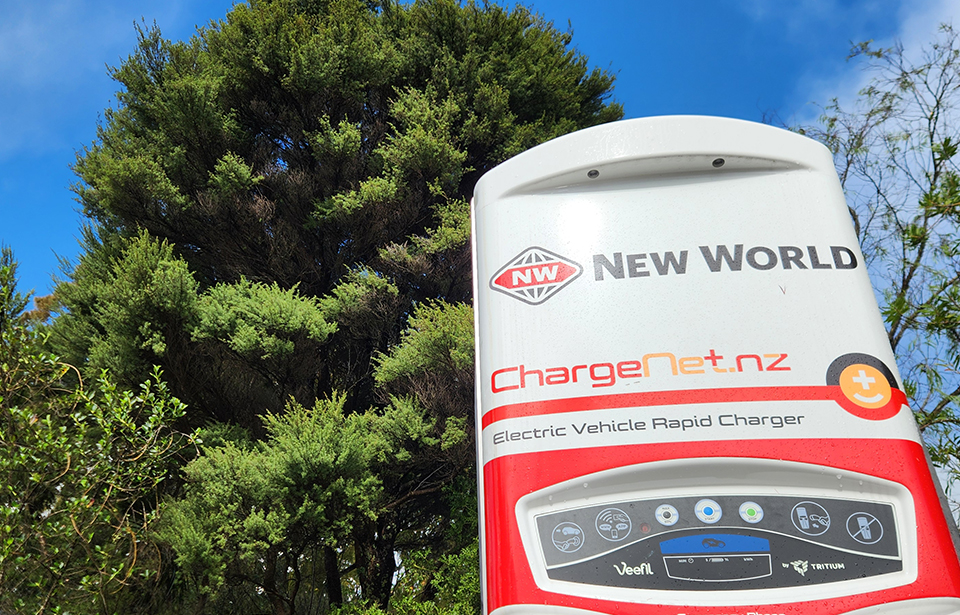Shift to electric vehicles may have unintended global cost
• May 2, 2025

New Zealand’s EV charging stations are on the rise, with a nationwide goal of 10,000 public charging points by 2030. Photo: Joseph McGee
New Zealand’s shift towards electric vehicles (EVs) promises environmental benefits but instead may fuel global ecological issues, says new research.
According to a recent study from the University of Auckland and Xiamen University in China, continued progress in battery technologies is paramount to improving the environmental performance of EVs.
However, successfully implementing the “green e-mobility” concept largely rests on green-energy supply solutions.
The study suggests that in cases where EVs are charged using electricity from fossil fuels, they may indirectly contribute to higher emissions than a modern gasoline vehicle when considering its entire lifecycle.
In March 2025, 757 fully electric light vehicles and 533 plug-in hybrids were registered in New Zealand, making up 10.6% of all new passenger car registrations.
Extracting a tonne of lithium, a key component in EV batteries, requires more than 2000 litres of water.
The Motor Trade Association's sector manager for dealers, Larry Fallowfield, says while lithium is key to EV batteries, the full environmental cost of its extraction, particularly on land, remains unclear.
“Mining lithium requires a lot of manpower and heavy equipment, and we don't really know what the impact is on the land that's left behind.
“We see pictures from China and Chile from time to time, but you rarely see what that landscape looks like after they've finished mining there.”
Chile’s largest salt flat, Salar de Atacama, has lost 65 per cent of its water supply due to lithium extraction.
This has led to water shortages that severely impact local farmers' ability to grow crops and maintain livestock.
Chinese lithium mining in Tibet has released chemicals like hydrochloric acid into the Liqi River, poisoning fish and killing livestock.
Fallowfield says EV battery production is set to change significantly, with a potential shift away from lithium-ion technology expected in the next few years.

An electric vehicle charging station outside New World supermarket in Chatswood, Auckland. Photo: Joseph McGee
In a statement issued to TWN, Greenpeace Aotearoa board member Genevieve Toop says to deal with the climate crisis, we need to phase out fossil fuels fast.
“Sixty per cent of total energy use across the country, including transport and industry still comes from fossil fuels.
“To cut carbon emissions, we need to scale up public transport, walking and cycling options, and rethink how we design our towns and cities to reduce car dependence overall.
“Electrifying the remaining vehicle fleet is just one part of a broader transition to cleaner, more accessible transport that works for people and the planet.”

Whakatairanga ka tika, whakamaua ngaa mita
AISHA CAMPBELL (NGĀTI RUANUI, NGĀ RAURU, NGĀ RUAHINE, TE ATIAWA, TARANAKI) • October 28, 2025

Supporters hope new council will save Western Springs Speedway
Savannah Lendich Jonkers • October 8, 2025


Whakatairanga ka tika, whakamaua ngaa mita
AISHA CAMPBELL (NGĀTI RUANUI, NGĀ RAURU, NGĀ RUAHINE, TE ATIAWA, TARANAKI) • October 28, 2025

Supporters hope new council will save Western Springs Speedway
Savannah Lendich Jonkers • October 8, 2025
